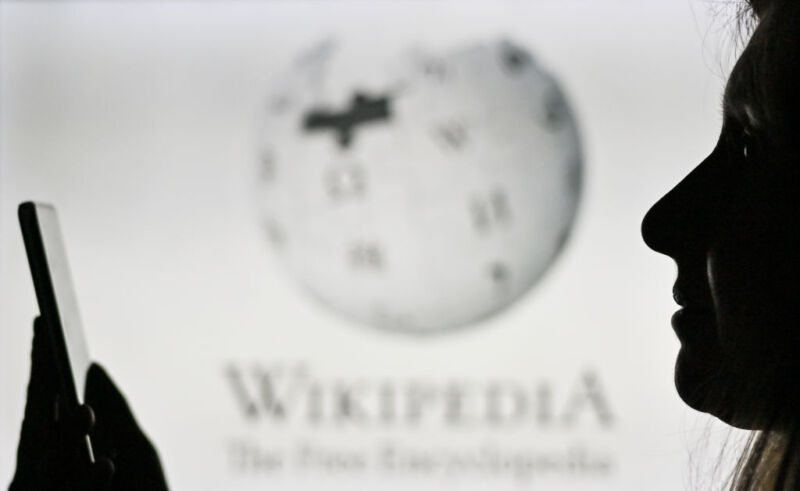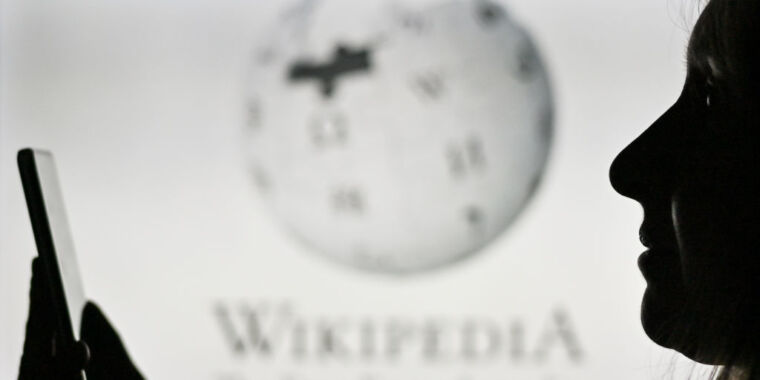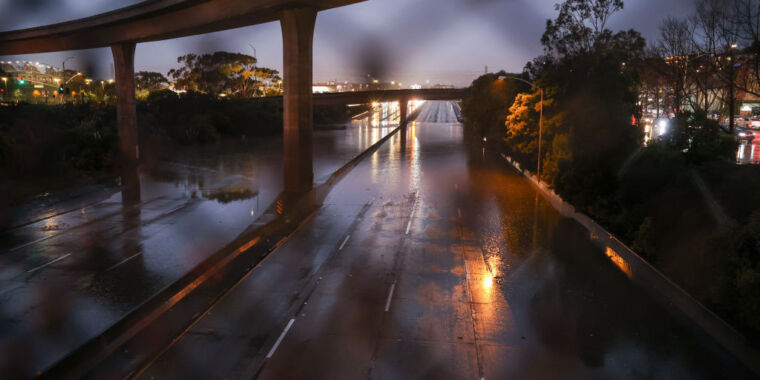
Whistleblowers have alleged that the Saudi Arabian government infiltrated the highest ranks of Wikipedia in order to control information about the country, activists reported yesterday. The alleged infiltration resulted in the 2020 arrests in Saudi Arabia of two Wikipedia administrators—Ziyad al-Sofiani (jailed for up to eight years) and Osama Khalid (jailed for up to 32 years)—for “swaying public opinion” and “violating public morals” by posting content “deemed to be critical about the persecution of political activists in the country.” Today, Wikimedia Foundation released a statement to Ars disputing the report, alleging that there was no “infiltration” and that Wikipedia admins have “no ranks.”
These conflicting statements follow an investigation concluded by the Wikimedia Foundation last month that resulted in the banning of 16 users for “conflict of interest editing on Wikipedia projects” in the Middle East and North Africa (MENA) region. At the time, Wikimedia said, “We were able to confirm that a number of users with close connections with external parties were editing the platform in a coordinated fashion to advance the aim of those parties.”
According to a joint statement from US-based rights group Democracy for the Arab World Now (DAWN) and Beirut-based SMEX, sources close to Wikipedia and interviews with the jailed administrators confirmed that those “external parties” were “government agents acting as independent editors.” These government agents acted as spies for Saudi authorities, the activists alleged, identifying noncompliant administrators like those jailed for editing Wikipedia entries to include information that Saudi officials did not approve of.
“It’s wildly irresponsible for international organizations and businesses to assume their affiliates can ever operate independently of, or safely from, Saudi government control,” DAWN Executive Director Sarah Leah Whitson said in a statement.
DAWN and SMEX did not immediately respond to Ars’ request for comment. (Update: Wikimedia has released an updated statement here on “inaccuracies.” Whitson told Ars that Wikimedia is “playing technical word games” and that “it’s really important for Wikimedia to be transparent about what they have described as a conflict of interest among its editors.” She said that Wikimedia should “provide more transparency about the 16 users that they banned” and “the safety precautions they’re going to take to avoid further endangering Wikipedia editors in totalitarian states, because there’s no denying that two of them are now languishing in Saudi prisons” and the problem goes “well beyond Saudi Arabia.” Whitson urges Wikimedia to reconsider its global model of relying on Wikipedia editors based in totalitarian states, not just because it can endanger the editors, but also because Wikipedia “loses its credibility” when information edited in these states cannot be trusted.)
A Wikimedia spokesperson told Ars that there are “material inaccuracies in the statement released by SMEX/DAWN” and in a Guardian report.
“There was no finding in our investigation that the Saudi government ‘infiltrated’ or penetrated Wikipedia’s highest ranks,” Wikimedia’s spokesperson told Ars. “And there are in fact no ‘ranks’ among Wikipedia admins. There was also no reference to Saudis acting under the influence of the Saudi government in our investigation. While we do not know where these volunteers actually reside, the bans of any volunteers who may have been Saudi were part of a much broader action globally banning 16 editors across the MENA region.”
Activists claimed that Wikimedia was “cryptically” excluding details in its statement, alleging that sources confirmed that “the ban was against 16 Saudi users, Wikimedia’s highest ranked editorial team in the region, following its discovery that they were serving as agents for the Saudi government to promote positive content about the government and delete content critical of the government, including information about political prisoners in the country.” (All banned users are listed on this Wikimedia page as being banned on December 6, 2022.)
In their statement, DAWN and SMEX also clarified that by “high-ranking” administrators, they were pointing to Wikipedia’s user access levels, which Wikipedia says “affects their abilities to perform specific actions on Wikipedia.” These users are not Wikipedia employees but are instead volunteers granted access to different tools. Only admins, Wikipedia says, have “exclusive access to a number of tools to allow them to carry out certain functions on the wiki. The tools cover processes such as page deletion, page protection, blocking and unblocking users, and the ability to edit fully protected pages.”
The Wikimedia Foundation did not comment on the Wikipedia admins’ arrests, but in its December statement, it indicated that legal limitations perhaps prevented further comment.
Activists say that Wikimedia’s response is inadequate, and they are urging the foundation to make the results of its investigation public—disclosing “all of the pages the team based in Saudi Arabia edited” and subjecting “them to independent review and analysis.” They also say Wikimedia should put warning labels on pages for which admins could be at risk of prosecution by authoritarian regimes and “review its reliance on administrators in countries where freedom of speech is limited and independent writing severely restricted.”
The groups have also asked Saudi officials to “disclose its efforts to influence and control the content on Wikipedia,” including the “extent to which it pressured or rewarded administrators based in Saudi Arabia to produce content.” They’ve asked Saudi authorities to release “those prosecuted or sentenced for their role in posting content in Wikipedia.”
Wikimedia said in December that it would be exploring “various ways to keep everyone safe and free to contribute to the projects.” The foundation promised to “work with our communities to find a global process to navigate safety challenges that allow such situations to be dealt with as transparently as possible while also prioritizing avoiding risk to the safety of our users.”
We will update this post if the foundation provides updates on any new actions it plans to take in 2023 to shield admins from authoritarian regimes’ attempts to control Wikipedia content.








